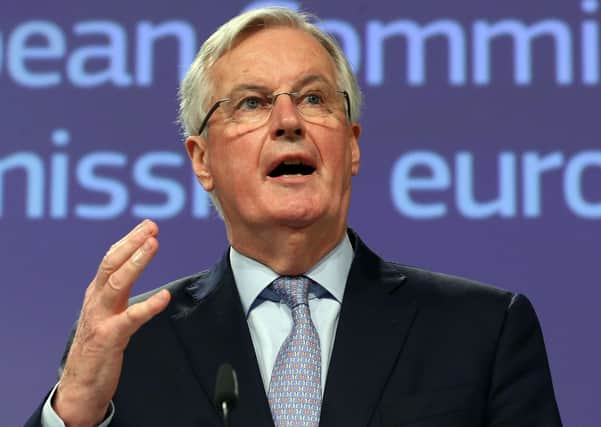Brexit: First round of trade talks with EU confirms ‘serious’ differences


Four days of negotiations in Brussels between the two 100-strong negotiating teams confirmed differences over access to British waters for European fishing fleets and what role the European Court of Justice will have in policing a “level playing field” in regulations.
Both sides said discussions had been “constructive” but the EU’s chief negotiator Michel Barnier warned there could be no going back on past commitments if an agreement is to be reached.
Advertisement
Hide AdAdvertisement
Hide AdHe told a press conference the negotiations would be “challenging”, with differences over fishing rights, criminal justice and the extent to which the UK was prepared to maintain a “level playing field” with EU regulations.
“To be completely frank with you... there are many divergences and they are very serious divergences. Which is probably quite natural after a first round of negotiations,” he said.
“Our differences come as no surprise, especially after only one round of negotiations, but some are very, very difficult. However, I continue to believe that we can reach a good agreement for both sides.”
Mr Barnier said he had sought and received assurances from Britain’s lead negotiator, David Frost, that the UK would respect all of its legal undertakings in the Withdrawal Agreement.
He said Brussels would be monitoring “very closely” the UK’s implementation of the terms in relation to the border between Northern Ireland and the Irish Republic.
“This is a condition for the trust that we need now to build our future partnership on a good basis,” he said.
On fisheries, Mr Barnier again rejected UK proposals for annual negotiations on quotas, saying EU fishermen needed “predictability”, and claimed that agreement on the issue had to be part of any wider deal.
Mr Barnier said the British negotiators had also made clear they did not want to commit formally to continuing to apply the European Convention on Human Rights.
Advertisement
Hide AdAdvertisement
Hide AdBritish officials believe the EU position on fisheries and the “level playing field” go far beyond precedent.
On fisheries, the UK says the EU is trying to maintain the status quo, while the common fisheries policy was one of the reasons people voted to leave the EU.
A UK Government spokesman welcomed the “constructive tone” on both sides but warned that the negotiations would be “tough”.
“Following detailed discussions, we now have a good idea where both parties are coming from,” he said. “The UK team made clear that, on 1 January 2021, we would regain our legal and economic independence – and that the future relationship must reflect that.”
Comments
Want to join the conversation? Please or to comment on this article.